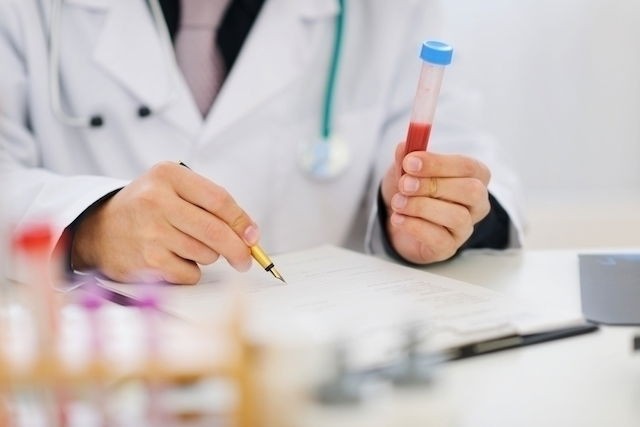Creatinine is a waste product generated by muscle metabolism. Your kidneys filter creatinine from your blood, and it leaves your body through urine. Measuring creatinine levels in the blood is a common way to assess how well your kidneys are functioning. Elevated creatinine levels can sometimes be a cause for concern, prompting many to ask, “Why Is My Creatinine High?” While high creatinine can signal kidney issues, it’s not always indicative of a serious problem. Understanding the potential causes and knowing when to seek medical advice is crucial for managing your health.
Understanding Creatinine and Normal Levels
Creatinine is produced naturally when you use your muscles. Healthy kidneys efficiently remove creatinine from the bloodstream, maintaining a normal balance. Creatinine levels are typically measured in milligrams per deciliter (mg/dL) and normal ranges can vary slightly depending on the laboratory and individual factors like gender. Generally, the normal creatinine range for women is between 0.6 to 1.2 mg/dL, and for men, it’s 0.7 to 1.3 mg/dL. It’s important to remember these are general guidelines, and your doctor will consider your specific health profile when interpreting your creatinine test results.
Symptoms of High Creatinine
Often, mildly elevated creatinine levels don’t cause noticeable symptoms. However, significantly high creatinine, which indicates a more substantial decrease in kidney function, can lead to various symptoms. These symptoms are often non-specific and can be associated with other conditions, but their presence alongside high creatinine should prompt medical evaluation. Common symptoms to watch out for include:
- Fatigue and weakness: Feeling unusually tired and lacking energy.
- Loss of appetite: Reduced desire to eat or feeling full quickly.
- Nausea and vomiting: Feeling sick to your stomach, potentially with vomiting.
- Shortness of breath: Difficulty breathing or feeling breathless, even with minimal exertion.
- Itching: Persistent and unexplained itching all over the body.
- Swelling (edema): Noticeable swelling in the legs, ankles, feet, or around the eyes.
It’s important to note that these symptoms are more likely to occur when creatinine levels are significantly elevated. If you experience these symptoms, especially if you have risk factors for kidney disease such as diabetes, high blood pressure, or a family history of kidney problems, it’s essential to consult a healthcare professional for proper diagnosis and management.
 Symptoms of high creatinine, including fatigue and swelling, visualized.
Symptoms of high creatinine, including fatigue and swelling, visualized.
Common Causes of High Creatinine
Several factors can contribute to elevated creatinine levels. Understanding these potential causes can help you have a more informed conversation with your doctor.
1. Intense Physical Activity
Engaging in strenuous workouts can temporarily increase creatinine levels. This is because muscle breakdown during intense exercise releases more creatinine into the bloodstream. This elevation is usually not a sign of kidney damage but rather a physiological response to muscle exertion.
How to manage: If your high creatinine is suspected to be due to intense exercise, your doctor may recommend retesting after a period of rest to see if levels return to normal. In these cases, no specific treatment is needed.
2. Dehydration
When you are dehydrated, the volume of fluid in your body decreases. This can lead to more concentrated urine and make it harder for the kidneys to filter waste products effectively, potentially resulting in a temporary rise in creatinine levels.
How to manage: Increasing your fluid intake is crucial. Drink plenty of water throughout the day, and consider incorporating hydrating fluids like herbal teas and water-rich fruits and vegetables into your diet. In some cases, especially with severe dehydration, electrolyte replacement might be necessary, guided by medical advice.
3. High Protein Diet
Consuming a diet very high in protein, especially from sources like red meat, can increase creatinine production. Protein breakdown leads to the release of creatine, which is then converted to creatinine. While moderate protein intake is essential, excessive amounts can put extra strain on the kidneys.
How to manage: Aim for a balanced diet with appropriate protein intake. For most adults, a guideline is around 0.8 grams of protein per kilogram of body weight. Athletes or individuals with specific needs may require slightly more, but it’s best to consult with a healthcare professional or registered dietitian to determine your ideal protein intake.
4. Creatine Supplements
Creatine supplements are popular among athletes and bodybuilders to enhance muscle mass and performance. However, since creatine is converted into creatinine, taking creatine supplements can directly increase creatinine levels in the blood.
How to manage: If you are taking creatine supplements and are concerned about high creatinine, discuss the dosage and necessity of supplementation with your doctor or a registered dietitian. They can help you understand the potential impact on your creatinine levels and whether adjustments are needed.
5. High Blood Pressure (Hypertension)
Chronic high blood pressure can damage blood vessels throughout the body, including those in the kidneys. This damage can impair kidney function over time, reducing their ability to filter waste products like creatinine effectively, leading to elevated levels.
How to manage: Managing high blood pressure is crucial for kidney health. This often involves lifestyle modifications like diet changes (reducing sodium, increasing potassium), regular exercise, and stress management. Medications are frequently necessary to control blood pressure effectively.
6. Pre-eclampsia
Pre-eclampsia is a serious condition that can develop during pregnancy, characterized by high blood pressure and protein in the urine. It can affect kidney function and lead to increased creatinine levels, posing risks to both the mother and the baby.
How to manage: Pre-eclampsia requires close medical monitoring and management by healthcare professionals specializing in obstetrics. Treatment focuses on controlling blood pressure and ensuring the safety of both mother and child, potentially including early delivery in severe cases.
7. Kidney Infections (Pyelonephritis)
Kidney infections occur when bacteria or other pathogens infect the kidneys. These infections can cause inflammation and damage to kidney tissue, impairing their filtering function and leading to elevated creatinine levels. Chronic or recurrent kidney infections are particularly concerning.
How to manage: Kidney infections typically require antibiotic treatment to eradicate the infection. Pain relievers and anti-inflammatory medications may also be used to manage symptoms. Drinking plenty of fluids is important to help flush out bacteria and support kidney function.
8. Diabetic Ketoacidosis (DKA)
Diabetic ketoacidosis is a severe complication of diabetes characterized by dangerously high blood sugar and a buildup of ketones (acids) in the blood. DKA can significantly stress the kidneys and impair their function, resulting in elevated creatinine levels.
How to manage: DKA is a medical emergency requiring immediate hospitalization. Treatment involves insulin therapy to lower blood sugar, fluid and electrolyte replacement, and close monitoring to stabilize the patient and restore normal kidney function.
9. Kidney Failure (Renal Failure)
Kidney failure, also known as renal failure, represents a significant decline in kidney function. In kidney failure, the kidneys are severely compromised in their ability to filter waste products, including creatinine, from the blood. This leads to a buildup of creatinine and other toxins in the body. Kidney failure can be acute (sudden onset) or chronic (gradual progression).
How to manage: Treatment for kidney failure depends on the severity and type (acute or chronic). It may include medications to manage symptoms and underlying causes, dietary restrictions, and in advanced cases, dialysis or kidney transplantation to replace kidney function.
Diagnosis of High Creatinine
Diagnosing the cause of high creatinine typically involves a combination of medical history review, physical examination, and laboratory tests. Your doctor will consider your symptoms, medical history, and any risk factors you may have. The primary test to assess creatinine levels is a simple blood test.
If your blood creatinine is elevated, your doctor may order further tests, such as a 24-hour urine creatinine test to assess kidney filtration rate or a creatinine clearance test, which compares creatinine levels in blood and urine to estimate kidney function more precisely. Imaging tests, like ultrasound or CT scans, may also be used to visualize the kidneys and identify any structural abnormalities.
What to Do If Your Creatinine is High
If you receive results indicating high creatinine levels, it’s crucial to schedule a follow-up appointment with your doctor. Do not panic, but do take it seriously. Your doctor will interpret your results in the context of your overall health and medical history. They will determine the underlying cause of the elevated creatinine and recommend an appropriate course of action. This might involve lifestyle modifications, dietary changes, medication, or further specialist referral, depending on the diagnosis.
In conclusion, while finding out you have high creatinine can be concerning, understanding the potential reasons “why is my creatinine high” empowers you to take proactive steps for your health. By working closely with your healthcare provider, you can effectively manage your creatinine levels and maintain optimal kidney health.
